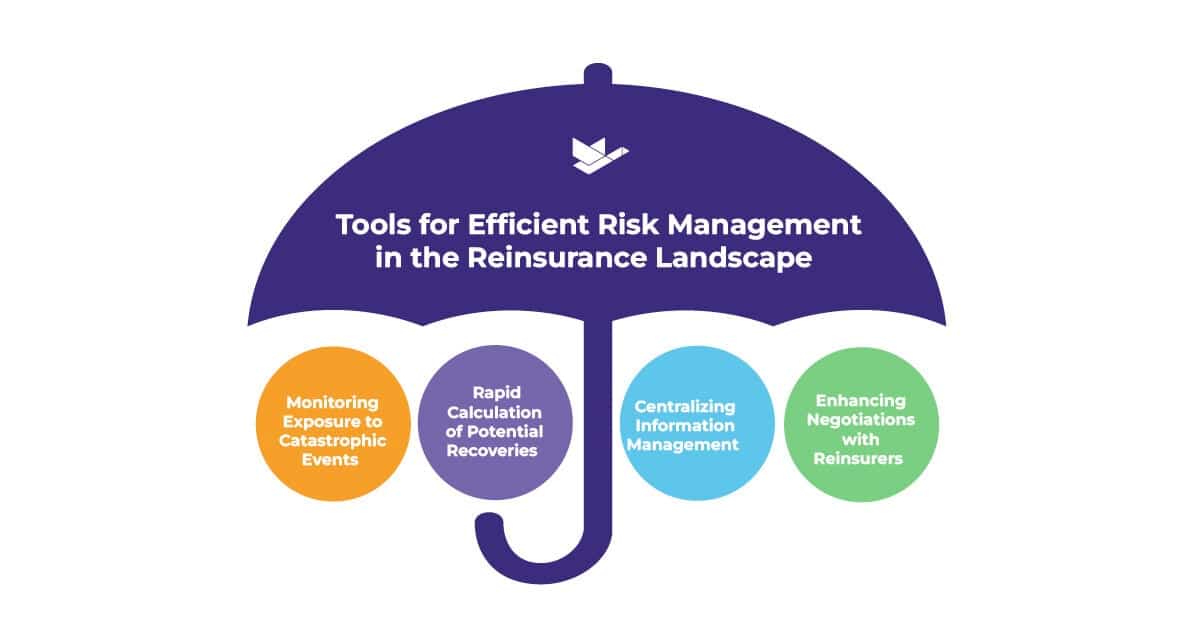In the complex arena of insurance, the topic of catastrophe reinsurance asserts its significance more than ever. For insurers, understanding and navigating the evolving challenges of reinsurance is not just about sustaining operations but also about thriving in the face of global uncertainty.
As natural disasters grow in both frequency and gravity, so does the need for robust strategies that ensure financial stability and enable quick recovery post-catastrophe. This pursuit of resilience is where the mastery of catastrophe reinsurance becomes indispensable, making it a subject of crucial importance to the entire insurance industry.
The Rising Role of Reinsurance Amidst Growing Catastrophes
The world has witnessed a steady increase in catastrophic events, with the cost of these disasters reaching alarming levels. Reinsurance has emerged as a critical mechanism for managing and mitigating these risks, providing much-needed financial support to insurance companies and their policyholders.
However, in the face of a globally interconnected economy and increasingly unpredictable climatic events, reinsurance is no longer just a financial security measure. It has become a strategic tool that enables insurers to distribute and manage risks effectively, fortifying their resilience in a turbulent market.
A Deeper Look into 2023’s Catastrophe Losses
Munich Re reports that natural catastrophes in 2023 caused losses to the tune of $250 billion, almost identical to 2022’s figures. However, insured losses dipped from $125 billion to $95 billion, largely due to the geographical concentration of such events.
For instance, the earthquakes in Turkey and Syria incurred a loss of $50 billion, yet only $5.5 billion was covered under insurance policies. Despite this decrease, the figures remain above the ten-year average, underscoring the importance of the insurance industry in disaster recovery and economic revitalization.
Unravelling the Challenges of Reinsurance Contracts in an Era of Rising Catastrophes
Munich Re’s report also highlights the critical role of insurance in mitigating the effects of natural disasters, and by extension, the increasingly pivotal role of reinsurance. Rising losses, the hottest year ever recorded in 2023, and tightening market conditions for reinsurance have made catastrophe reinsurance a complex subject for insurance companies in 2024 and beyond. To manage these treaties effectively, insurance companies require a robust IT system capable of handling intricate calculations and vast amounts of data.
Tools for Efficient Risk Management in the CAT Reinsurance Landscape
As the catastrophe reinsurance landscape continues to evolve, insurance companies must utilize advanced tools to effectively manage risk.

Monitoring Exposure to Catastrophic Risk & Events
First and foremost, insurers need tools that allow them to track their overall exposure to specific catastrophic events. These tools facilitate continuous adjustment and evaluation of risk profiles, accommodating fluctuations in the frequency and severity of events. By identifying potential risk concentration areas, companies can proactively minimize exposure.
Rapid Calculation of Potential Recoveries
Equally important is the ability to swiftly calculate potential recoveries from reinsurers. Through modern technological solutions, insurers can quickly determine potential recoveries, aiding in more informed decision-making. By forecasting these recoveries, insurers can efficiently manage cash flow and effectively plan future financial commitments.
Centralizing Information Management
Lastly, centralized information management systems play a crucial role in the reinsurance landscape. These systems offer comprehensive and accessible data, enabling risk to be distributed as widely as possible on the international reinsurance market. A holistic view of the risk portfolio aids in strategizing risk spreading initiatives.
Enhancing Negotiations with Reinsurers
Moreover, centralized information facilitates improved negotiations with reinsurers. With access to detailed, current data, companies can engage in mutually beneficial negotiations leading to advantageous contracts.
In short, the growing complexity of catastrophe reinsurance calls for the use of robust tools for risk management. By leveraging these tools, insurers can effectively monitor risk exposure, calculate potential recoveries, and manage information centrally, ultimately bolstering risk management and resilience against catastrophic events.
Looking Forward: Leverage Duck Creek Reinsurance for a Resilient Future
In sum, catastrophe reinsurance is an essential cog in the insurance industry’s machinery. It balances risks and protects insurers from the financial impacts of natural disasters. Despite the challenges that lie ahead, it’s crucial for insurers to continue exploring and investing in reinsurance for effective risk management and transfer.
Technology, like the SaaS solutions for insurers offered by Duck Creek, opens up new paths for companies to optimize their reinsurance processes and gear up for potential catastrophes. Join the many insurers already reaping the benefits of Duck Creek’s reinsurance solutions and strengthen your standing in the ever-fluctuating insurance landscape against catastrophic uncertainties.






